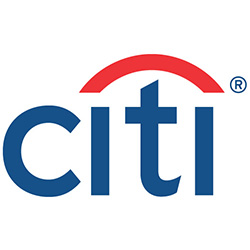Wealth Strategies
Citi Private Bank Hikes Equity Exposure

The bank points out the apparent discrepancy between a dramatic forecast drop in second-quarter GDP and how stock markets have recovered quite considerably from their lows.
Citi Private
Bank has moved into parts of the equity market, choosing
sectors most likely to fare well in an economy hit by
COVID-19, predicting that the next 10 years should
favor equities over cash and government debt.
The US banking house, like some other asset allocators, is trying
to work out how global developed equity markets are down by about
15 per cent this year while gross domestic product is expected to
drop by as much as 40 per cent in the second quarter on an
annualized basis. For the whole of this year, the International
Monetary Fund has predicted that GDP growth worldwide will drop
by 3 per cent.
“The timing of the market rebound [from its 2020 lows] should not
be a mystery. Equity markets typically lead earnings per share by
six months. COVID-19’s global spread shocked markets in late
February, forcing a harsh reassessment of the outlook. Dramatic
fiscal and monetary easing steps and the eventual prospect of the
reopening of economies suggests higher economic activity and
profits in coming quarters than in the present one,” the private
bank said in one of its regular Quadrant report.
“However, that still doesn’t explain why the S&P 500 had only
fallen 35 per cent at its March low, given that we expect EPS to
fall more than 60 per cent in 2Q. US large-cap equities contain
the highest weighting of technology services (across multiple
sectors) and near the highest share of healthcare of any global
index. Along with consumer staples, these sectors remain in high
demand in the present crisis. US small- and mid-cap (SMID)
equities and most non-US markets have lagged 12 per cent-15 per
cent behind,” it said.
Where to put money
Citi Private Bank said it has advised clients that excess cash
should first be allocated to the firms least impacted by the
COVID-driven economic crisis and to those with the strongest
balance sheets.
“With this in mind, we reallocated between equity markets and
reduced some of the hedges we had augmented in February. This
allowed us to sell some assets that have appreciated 30-40 per
cent over the last 12 months and reallocate to others that have
fallen 10 per cent-50 per cent. With market volatility at a
record high - losing or gaining as much as two years of return in
a single month – investors should show patience. This means
holding a balanced asset allocation rather than chasing sell-offs
and rallies,” it continued.
The MSCI World Index of developed countries’ equities is down by
15.24 per cent since the start of this year (as measured in
dollars).
Asset decisions
In global equities, the bank shifted to a 2 per cent overweight
in US small and mid-capitalization shares funded by underweights
in eurozone shares across all market caps. In emerging markets,
we boosted holdings in Asia and Latin America (Brazil in
particular within Latin America) to overweight, while reducing
allocations in Central Europe, the Middle East and Africa to
underweight. (The overall global equity allocation remains
neutral.)
In fixed income, the bank stays “significantly overweight” US
Treasuries, but has shifted duration lower to a neutral
allocation at the long end of the yield curve. It added further
money to US investment grade credit, and returned cash to a
neutral allocation of 2.0 per cent from 1.5. The overall global
fixed income allocation is now 1.5 per cent underweight (versus
-2.0 per cent), with deep underweights remaining in European and
Japanese bonds.
On the traditional safe haven of gold, Citi Private Bank added:
“We remain overweight gold and see further gains over time.
However, following a 35 per cent rise over the past year, we
reduced the allocation by 1 percentage point to +1.5 per cent,
unwinding our increase from February.”